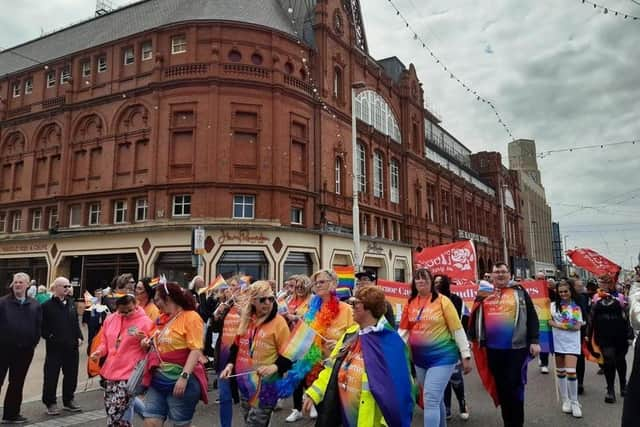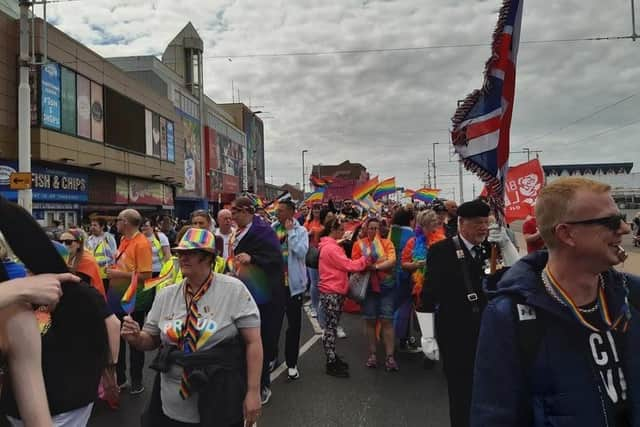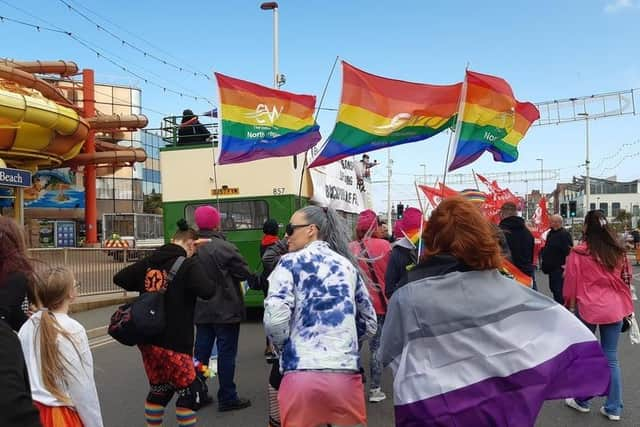Thousands of Blackpool residents identify with LGB+ sexual orientation, new census figures reveal
and live on Freeview channel 276
When were the new questions introduced?
The Office for National Statistics introduced voluntary questions for people aged 16 and over on sexual orientation and gender identity in the 2021 census.
Stonewall described the publication of the figures as a “historic step forward” after more than two centuries of LGBT+ lives being “missing from the national record”.
How many people identified as a sexual orientation other than heterosexual?
Advertisement
Hide AdAdvertisement
Hide AdThe ONS data shows 5,692 people in Blackpool identified as a sexual orientation other than heterosexual when the census was carried out in March 2021 – 4.9% of respondents.
The most common LGB+ sexualities were gay or lesbian (66.7% of those who did not identify as straight) and bisexual (27.6%).
The vast majority of residents said they were heterosexual (88.4%).


A further 7,700 people in Blackpool did not answer the question.
Advertisement
Hide AdAdvertisement
Hide AdAcross England and Wales, about 1.5 million people identified with an LGB+ sexual orientation in the 2021 census – 3.2% of those aged 16 and over.
Overall, 1.5% described themselves as gay or lesbian, 1.3% described themselves as bisexual and 0.3% selected “other sexual orientation”.


677 residents stated they did not identify with the gender assigned to them at birth
The census also asked people aged 16 and over about gender identity, with 677 (0.6%) Blackpool residents stating they did not identify with the gender assigned to them at birth.
Of them, 134 people were trans men and 124 were trans women. A further 59 said they were non-binary.
About 6,000 people did not answer the voluntary question.


Advertisement
Hide AdAdvertisement
Hide AdNationally, 262,000 people said their gender identity was different from their sex registered at birth – representing 0.5% of the population aged 16 and over.
What did the Office for National Statistics say about these figures?
ONS director Jen Woolford said the first census estimates were “crucial”, adding: “They will ensure decision-makers have the best information so they can better understand the extent and nature of disadvantage which people may be experiencing in terms of educational outcomes, health, employment and housing.”
What did Stonewall and the LGBT Foundation say?
Nancy Kelley, Stonewall chief executive, said: “For the past two centuries of data gathering through our national census, LGBTQ+ people have been invisible, with the stories of our communities, our diversity and our lives missing from the national record.
“Today is a historic step forward after decades of Stonewall campaigning to record sexual orientation and gender identity in the census, finally painting an accurate picture of the diverse ‘Rainbow Britain’ that we now live in, where more and more of us are proud to be who we are.”
Advertisement
Hide AdAdvertisement
Hide AdThe LGBT Foundation said the data is a “huge first step in making LGBTQ+ people feel included” but added it will be years before the figures provide an accurate picture.
The charity said: “The historic and ongoing attitudes towards LGBTQ+ communities, particularly trans and non-binary people, will stop many from feeling safe to provide this information.
“Meanwhile, many LGBTQ+ people are living within households and environments where they are unable to be open about their gender identity, sexual orientation and trans identity."
